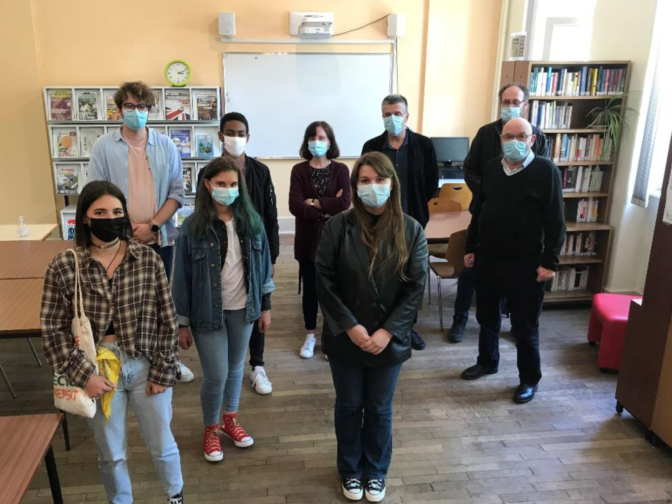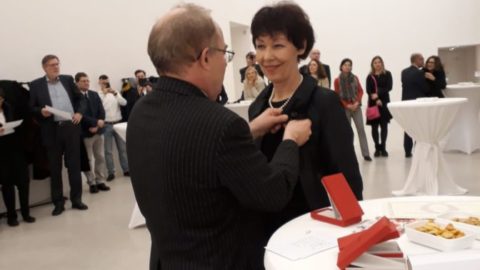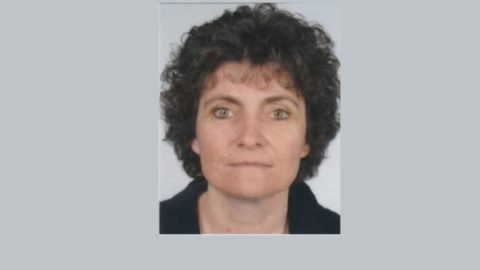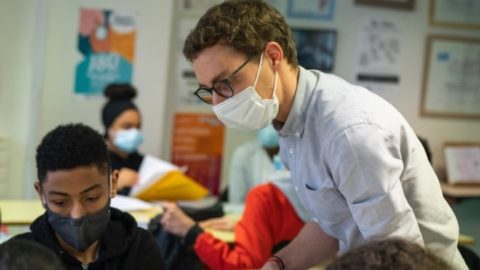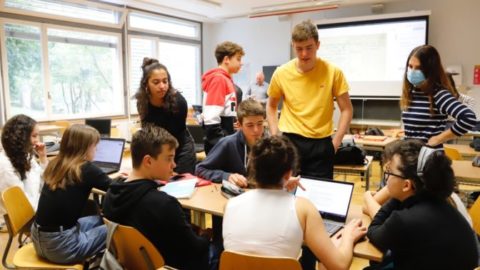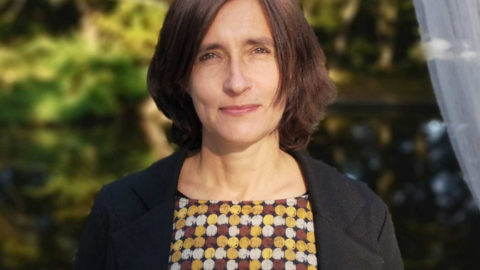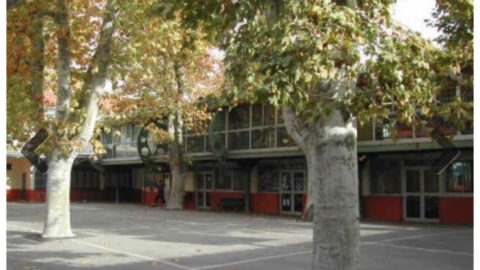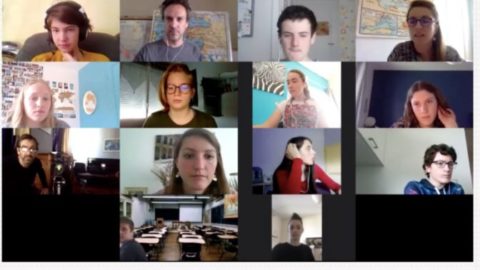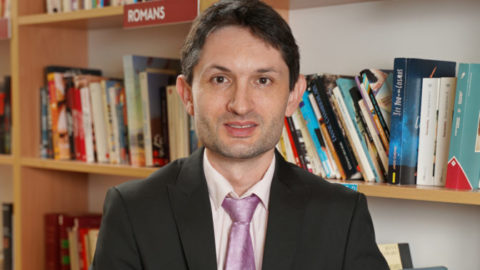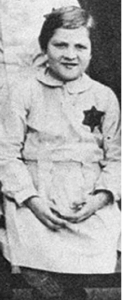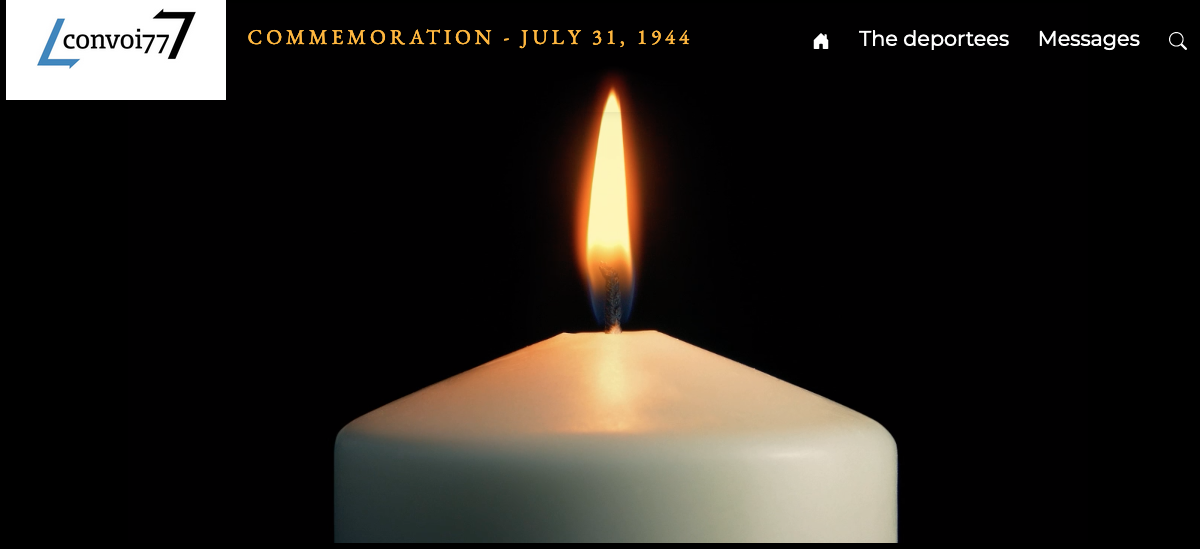Bruno Mandaroux and his students at the Louis Vincent high school in Metz worked on the biography of Charlotte Schuhmann, who was murdered when she was 13. Their work is one of eleven European projects chosen by the French Ministry of Education.
Please could you tell us about yourself and your class?
I am a History and Geography teacher and I am interested in passing the memory of the Second World War. Starting in 2017, as part of a call for projects launched by the Shoah Memorial, I have been arranging for my students to work with Jewish families in Metz on passing on the history of the Holocaust within their families. This is how we met Henry Schumann [editor’s note: Charlotte Schuhmann’s first cousin]. It was he who introduced us to the Convoy 77 project.
Thirty-six 10th grade students worked on this biography. I felt very early on that they had a genuine interest in this work.
How did you organize this group work in the context of the Convoy 77 project?
We worked during Civic and Moral Education sessions, for one hour per week with half of a class. Each student therefore worked on the project once every two weeks.
We met several people as part of the investigation. In September, we met Henry Schumann. He was able to show us where Charlotte lived before the war. He had some documents, and some of them were the originals.
We were subsequently able to make contact with Robert Frank [editor’s note: a childhood friend of Charlotte’s]. We were also able to speak with Richard Niderman [editor’s note: a friend of Henry Schumann, who had found information about Charlotte while researching his own family].
Meeting someone is always great for the class. Prior to the interviews, the students always prepared questions. We then used the documents provided by the witnesses.
We have also sought help from the archive services. In January, the students were able to go to the Metz municipal archives, where we obtained Charlotte’s family’s civil records and address cards (something peculiar to the Moselle region). This was very useful, because it enabled us to find out when they left Metz.
The investigation took place from September to March, and then it was time to finalize the written work. I divided the students into groups of three or four. They then had to choose some documents and make notes about them. The writing was done as they went along. Each group had to write two paragraphs.
What impact has this work had, from an individual point of view (on you personally and on the students) and also more broadly (on the school, the municipality and others)?
Many of the students felt that they could identify with Charlotte, who was just a child, much like themselves. They also felt a sense of satisfaction in terms of their duty to remember because they felt they had rescued a young girl from oblivion. And it’s true: many people have since heard about Charlotte Schuhmann, thanks to them.
Throughout this project, there was a great deal of emotion. Some students were very moved. This created a special bond between them. Also, our work prompted discussions at home: for some of them, it raised questions about their own family history.
As for the school, our work on Charlotte was the theme of an online exhibition on the school’s website. The principal also decided to print our investigation in booklet form, and these were handed out to each student at the start of the school year in 2021.
On a broader level, our work has been featured in various places. The Metz Municipal Archives service produced a report entitled “A week with Charlotte”. We were interviewed in the local press. The Metz consistory magazine published our work and the magazine “Actualités juives” (Jewish News) also devoted a short article to it.
We were also invited to the ceremony in honor of the liberation of Auschwitz, held at the war memorial in Metz on January 27, 2020. During this ceremony, students read extracts from the works of Primo Levi.
Your work was chosen as one of the most noteworthy projects. How do you and/or the students feel about that?
We are very happy indeed. It is very gratifying. We feel we have been useful because our work has had an impact on other people.
People have actually met each other through us and we have learned a lot from all the witnesses we have talked to. It is extremely worthwhile, because for my students especially, the message is that this kind of thing should never happen again.
What advice would you give to other teachers who would like to participate in the project?
If possible, you should try to work with family members of the deported person. You have to knock on every door, at the archives services, at the town halls and at the schools. You have to insist, repeatedly. You have to draw on other existing works. And you also have to work together with colleagues and share information.


 Français
Français Polski
Polski